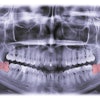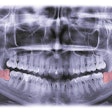
It is unclear whether prophylaxis antibiotics help prevent bacterial endocarditis in at-risk patients undergoing invasive dental procedures, according to a systematic review published May 10 in Cochrane Library.
Therefore, clinicians should discuss the pros and cons of preventive antibiotic therapy before prescribing them, the authors wrote.
"We do not know the effects of antibiotic prophylaxis for the prevention of bacterial endocarditis," wrote the authors, led by Anne-Marie Glenny of the division of dentistry at the University of Manchester in the U.K. (Cochrane Library, May 10, 2022).
Bacterial endocarditis often occurs in people with previously damaged or malformed areas of the heart and is treated with antibiotics. Up to 30% of people who get endocarditis may die, even with antibiotic treatment.
With the rise of antibiotic-resistant bacterial strains and related deaths, the use of prophylaxis antibiotics has been on dentistry's radar lately. In the spring of 2021, the American Heart Association issued a statement on the prevention of infective endocarditis, noting that antibiotic prophylaxis before dental procedures may prevent a very small number of endocarditis cases. Therefore, antibiotics only are recommended for patients at the highest risk of experiencing negative outcomes from infective endocarditis.
Current review
Since Cochrane Library's last review in 2013, the study's authors found no new studies, cohort studies, or randomized controlled trials that assessed serious adverse events, including death, hospitalization, or treatment cost implications among those at-risk for endocarditis who did or didn't receive preventive antibiotics after invasive dental procedures, they wrote.
However, one case-control study was found. This study included 48 people diagnosed with bacterial endocarditis over a specific two-year period who had undergone a medical or dental procedure with an indication for prophylaxis within the past 180 days. These patients were matched with a similar group who didn't contract an infection. When assessing the data, there was no significant effect of penicillin prophylaxis on the incidence of endocarditis, the authors wrote.
The above study was considered weak due to its design. For example, it is unknown whether those who received antibiotics were in worse overall health than those who did not receive the therapy, according to the review.
Clinicians have a legal obligation to discuss the potential benefits and harms of preventive antibiotic treatment with their patients before a decision is made about whether to prescribe it, they wrote.
It is unclear whether the potential harms and costs of antibiotic administration outweigh any beneficial effects," Glenny and colleagues wrote.




















